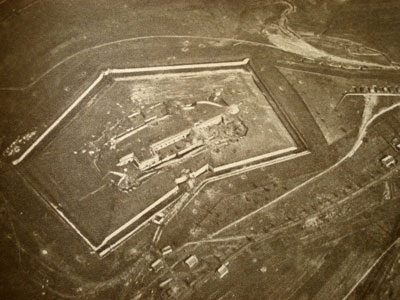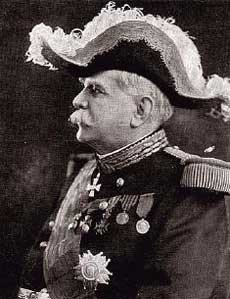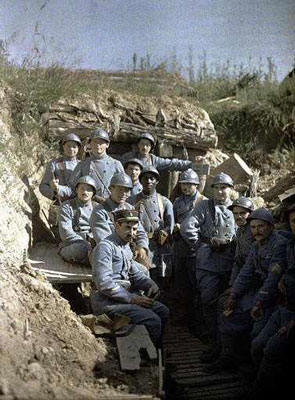
WWII: Maginot Line | Normandy | V-Weapon Sites | Arnhem
Further afield: Crete
| Home Tracing Military Ancestors Travel Advice CWGC Cemeteries Iron Harvest News Book Reviews Glossary Links Contact Me Verdun:
 
|
The Defence
Unbeknown to Falkenhayn and the Crown Prince, the French defences around Verdun were actually a lot weaker than they appeared. Their key, Fort Douaumont, situated at the highest point on the Hauts de Meuse and the most modern of all the forts surrounding Verdun, had been stripped of its guns and garrison to reinforce the French Army's 1915 autumn offensives in Artois. Many in the French command believed, in light of how easily the Belgian forts had succumbed to German heavy artillery, that forts were now obsolete on the modern battlefield. Further, having not seen major action since the opening months of the conflict, Verdun was thought to be a "quiet" sector where battle-scarred divisions could regroup and lower-grade units could hold the line.
Lieutenant-Colonel Emile Driant, a member of the Chamber of Deputies, was almost alone in drawing the French command's attention to the weakness of the Verdun defences should the Germans attack. His impassioned pleas were rebuked by Marshal Joffre, Commander-in-Chief of the French Army, despite reaching the ears of the Minister for War, Galliéni. Ironically in February 1916, as the hour of the German assault approached, Driant commanded two battalions of Chasseurs right in the centre of Falkenhayn's "killing ground". His prophecies and subsequent demise were to earn Driant a central place in the story of Verdun.
|


